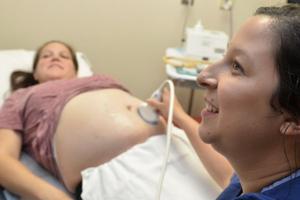Memories of Katrina: ‘We Were All Neighbors’
Archbishop Thomas Rodi of Mobile, Ala., and Bishop Roger Morin of Biloxi, Miss., remember the super storm of 10 years ago.

Editor’s Note: It was 10 years ago that Hurricane Katrina made landfall in the southeastern United States and inflicted such loss of life and possessions that it became known as the worst natural disaster in the history of our country. What follows are excerpts from the personal recollections of Bishop Roger Morin of Biloxi, Miss., who, at the time of Katrina was an auxiliary bishop of the Archdiocese of New Orleans, and Archbishop Thomas Rodi of Mobile, Ala., who was then the bishop of Biloxi. Edited for style, they are reprinted with permission from the Gulf Pine Catholic, the newspaper of the Diocese of Biloxi.
ARCHBISHOP RODI
“The Pastoral Center lost electricity. It was hot and humid, the beeping of battery operated computers incessantly filled the air, and the rain poured in through the roof which was shorn by the winds of all but its plywood deck. I watched as tree after tree on the property fell."
“I remember on Tuesday morning standing in the muck inside Sacred Heart Church in D’Iberville which had been flooded with ten feet of water and encountering for the first time the ‘Katrina smell’ which I can never describe and never forget.”
“A teenager told me how he was in his home when the storm hit and Katrina’s 28-foot storm surge destroyed the house. He, his little sister, and his grandmother made it out of the house and swam for high ground through the howling winds with water swirling with dangerous debris. He told me he and his little sister finally made it to safety. I asked him ‘What about your grandmother?’ The young man, with an expressionless face, but with eyes that betrayed the deep pain within his heart, said ‘I couldn’t save them both.’”
“People from elsewhere in the country have often asked me if Katrina brought people closer to God. I answer that it depends on the individual. Suffering comes into every human life. We do not choose when we will suffer or how we will suffer. We do choose, however, what we will do with it. Suffering does not leave us unchanged. We will choose either to become better or to become bitter. There were those who after the storm became more loving, generous, and faith-filled people. However, there were also people who allowed the pain of the storm to estrange them from God and from others.”
"Suffering can weaken us with bitterness or strengthen us in trusting in God. The Bible teaches, “We know that all things work for good for those who love the Lord” (Romans 8:28). The darkest times in life powerfully teach us that God is with us in all things and that with God we have nothing to fear — and with God we can handle anything."
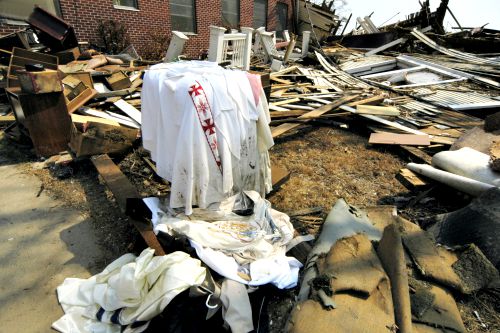
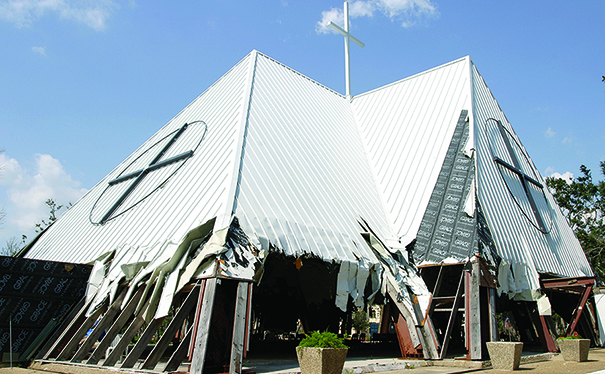
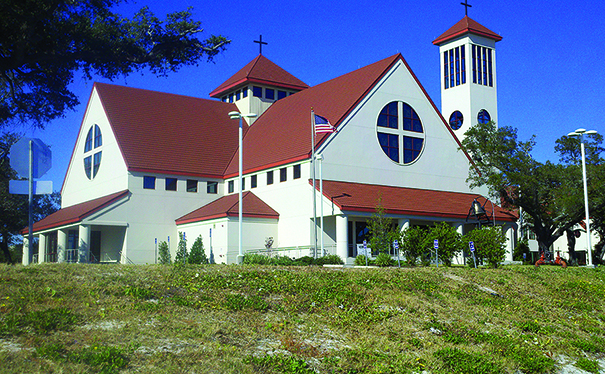
BISHOP MORIN
“The quiet after the storm did bring a ray of hope. I remember quite vividly that the sun did shine later on in the afternoon of Aug. 29, 2005. The wind died down and debris, tree branches and roof tiles littered the ground everywhere. After the roaring wind and driving rain, there was a consolation to a quiet that was almost eerie until there were new sounds: the readily identifiable whirring and air-chopping noises of helicopters that signaled activity and brought a glimmer of hope. “
"On a daily basis, we became aware of the fact that caring, helpful volunteers made the biggest difference in disaster relief. First, neighbors who had fared better than those who had suffered staggering losses were the first to share with those in need. Donations from compassionate citizens from around the country, East Coast to West Coast, made it clear that we were not strangers to them. We were all neighbors."
“People of faith recognize moments of grace. Trials and tribulations are challenges to the human spirit and moments to summon triumph from tragedy. Each step forward provides hope and aspirations for the possibility of victory over adversity.”
"We needed help, and as we were blessed by the good works and the charity of others, we had many, many more occasions to say, “Thank God” for shelter, food and clothing. We were blessed day after day, week after week, month after month by those who had not forgotten that Katrina had literally turned our world upside down and we needed friends to lean on as we stood up to take steps forward with the rebuilding of our communities"
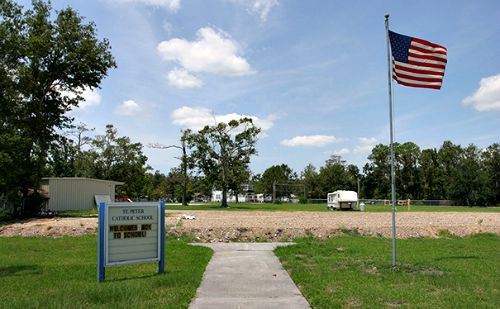
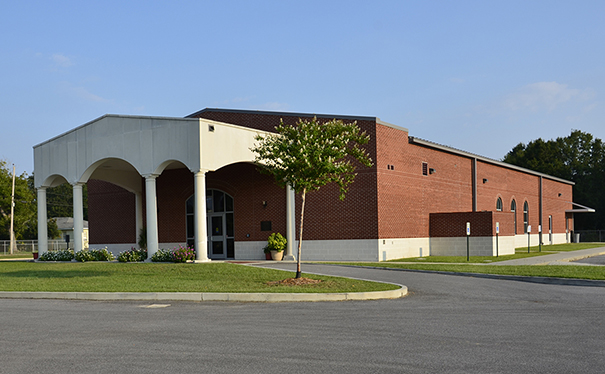
- Keywords:
- archbishop thomas rodi
- biloxi
- bishop roger morin
- hurricane katrina
- mississippi
- natural disaster







